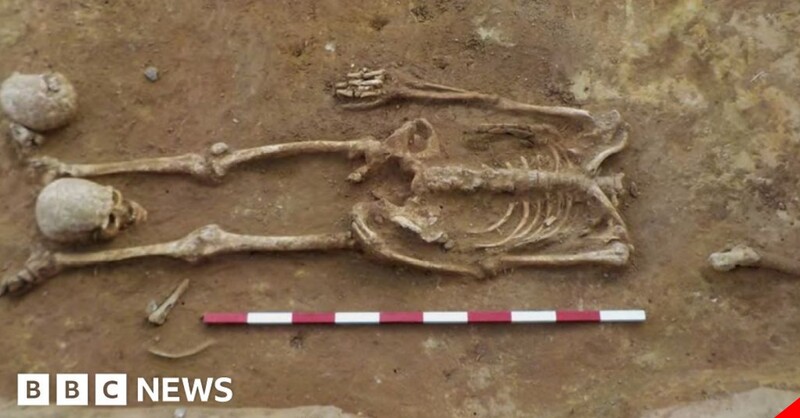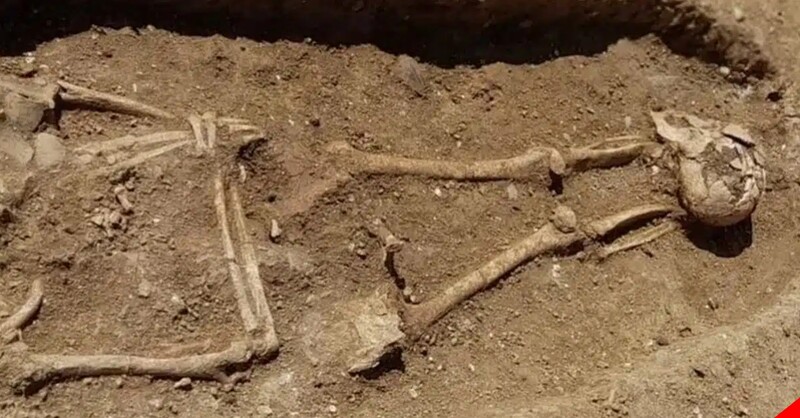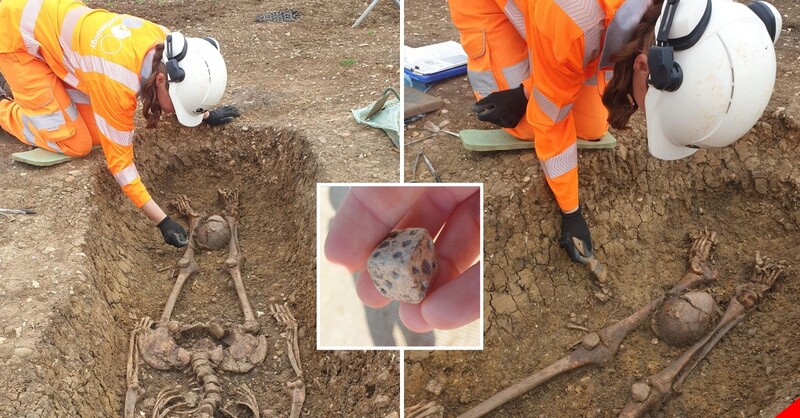Oxford Archaeology archaeologists have discovered a Roman cemetery with headless remains.
Oxford Archaeology archaeologists have discovered a Roman cemetery with headless remains.
Excavations at the location were done in Cambridgeshire’s Wintringham, close to St. Neots, in order to prepare the land for future home development.

Decapitated skeletons found in Roman cemetery
During the Roman period, the area was a patchwork of small farms and growing settlements, linked together by a network of roads that connected the settlements to the town of Durovigutum, (now Godmanchester).
A total of 17 burials have been identified, with 11 skeletons being decapitated and having their head positioned by the feet. Interestingly, one of the decapitated skeletons had a pottery vessel substituted for the head, while the remainder were found interred alongside ceramics.

A Roman cemetery containing decapitated skeletons
The practice was not uncommon in Roman Britain. A Roman cemetery found in February 2022 near the village of Fleet Marston in Buckinghamshire, uncovered 40 skeletons also buried with the head positioned at the feet.
The Wintringham cemetery dates from the 3rd century AD around 2,500-years-ago, where the researchers also found Roman coins, brooches, a lead platter, pottery vessels, a large number of quern and millstones, and a Roman kiln.
The remains will now be analysed by specialists to provide new insights into the burial rites of people living in the area during Roman times.

One of the decapitated skeletons had a replacement ceramic vase for the head
Excavations at the site also uncovered a large Iron Age agricultural settlement, consisting of 40 stone roundhouses and a network of trackways and enclosures.
Mr Moan, the project manager, told the Hunts Post: “These results add greatly to our understanding of the local landscape’s history which we can now share with local communities, and nationally through our work with Digging for Britain.”
The excavations will be featured in episode three of Digging for Britain on BBC Two.
Source:








